Employee misconduct, such as absenteeism and disobedience, can significantly disrupt company operations and affect productivity.
However, Malaysian employment law requires employers to follow fair procedures before dismissing staff for misconduct.
Several industrial court cases demonstrate how companies must provide ample warnings and prove misconduct before courts will uphold absenteeism dismissals as justified.
Below are 3 Malaysian industrial court cases dealing with dismissals of employees due to misconduct related to absenteeism and disobedience:-
1. American International Assurance v Seah Chee Teck
2. Harapan Ramai Sdn Bhd v Yajadesan Raman
3. Pulai Mewah Sdn Bhd v Leong Fook Heng
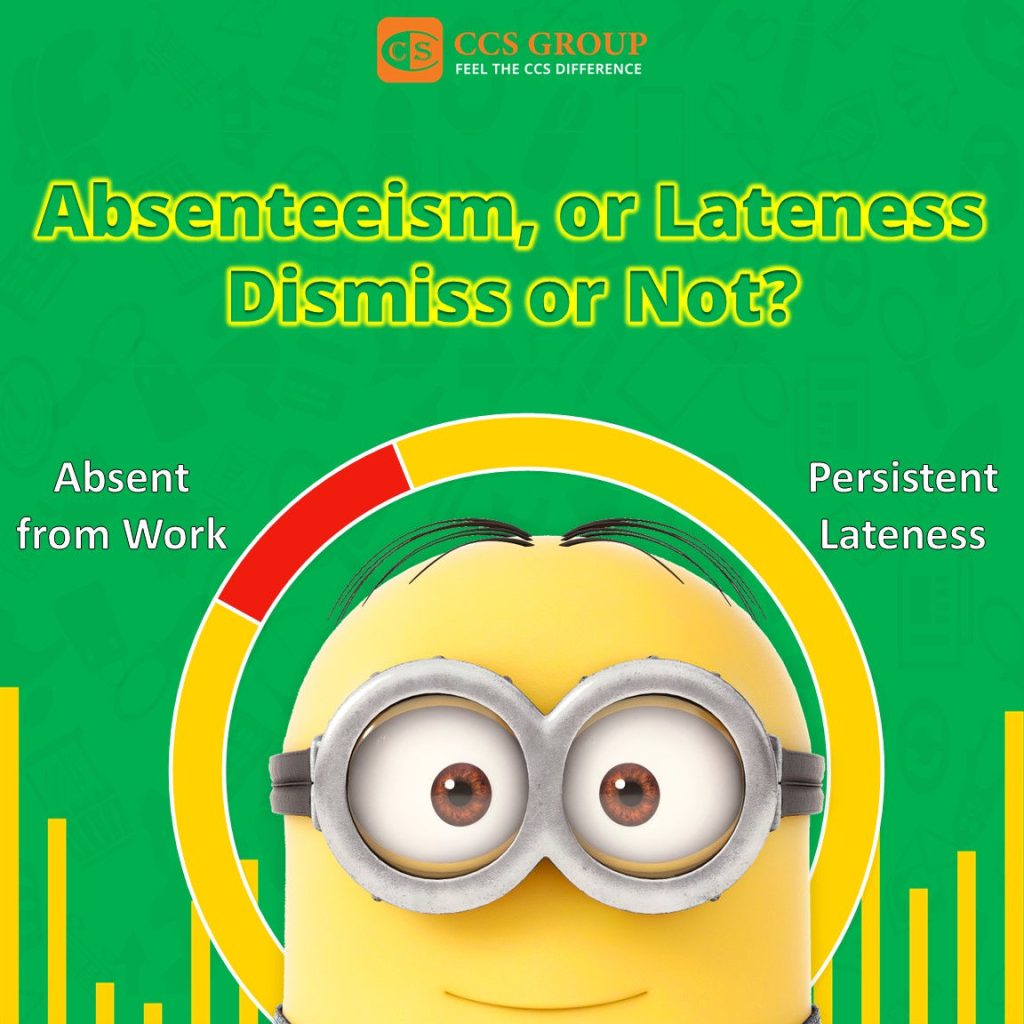

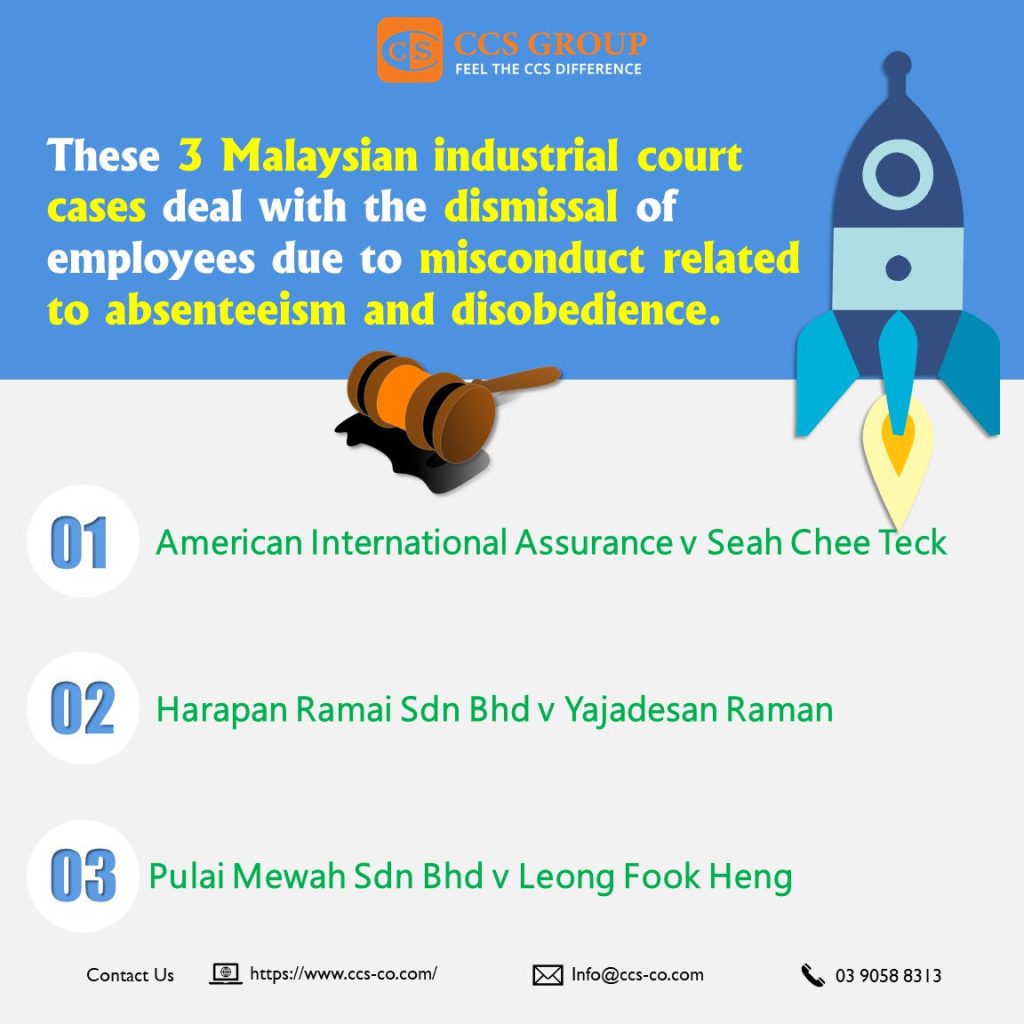
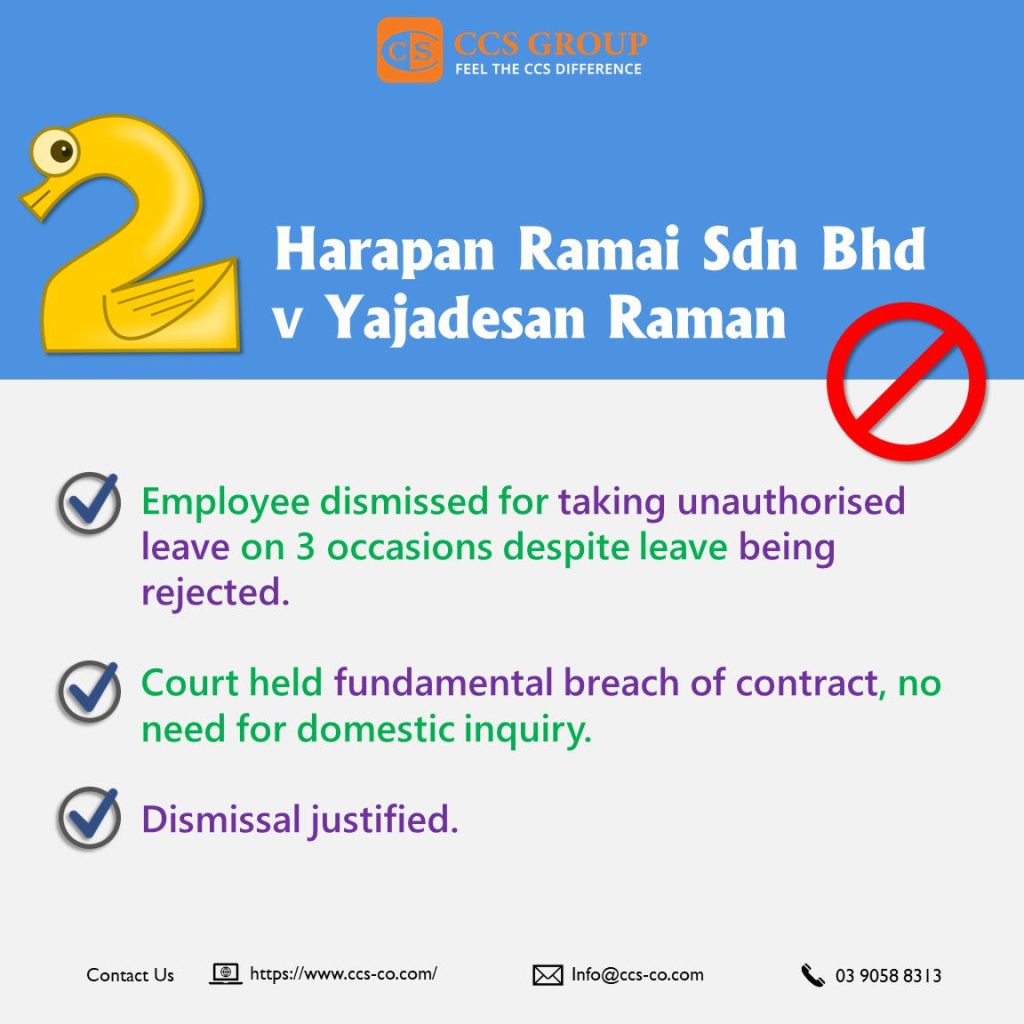

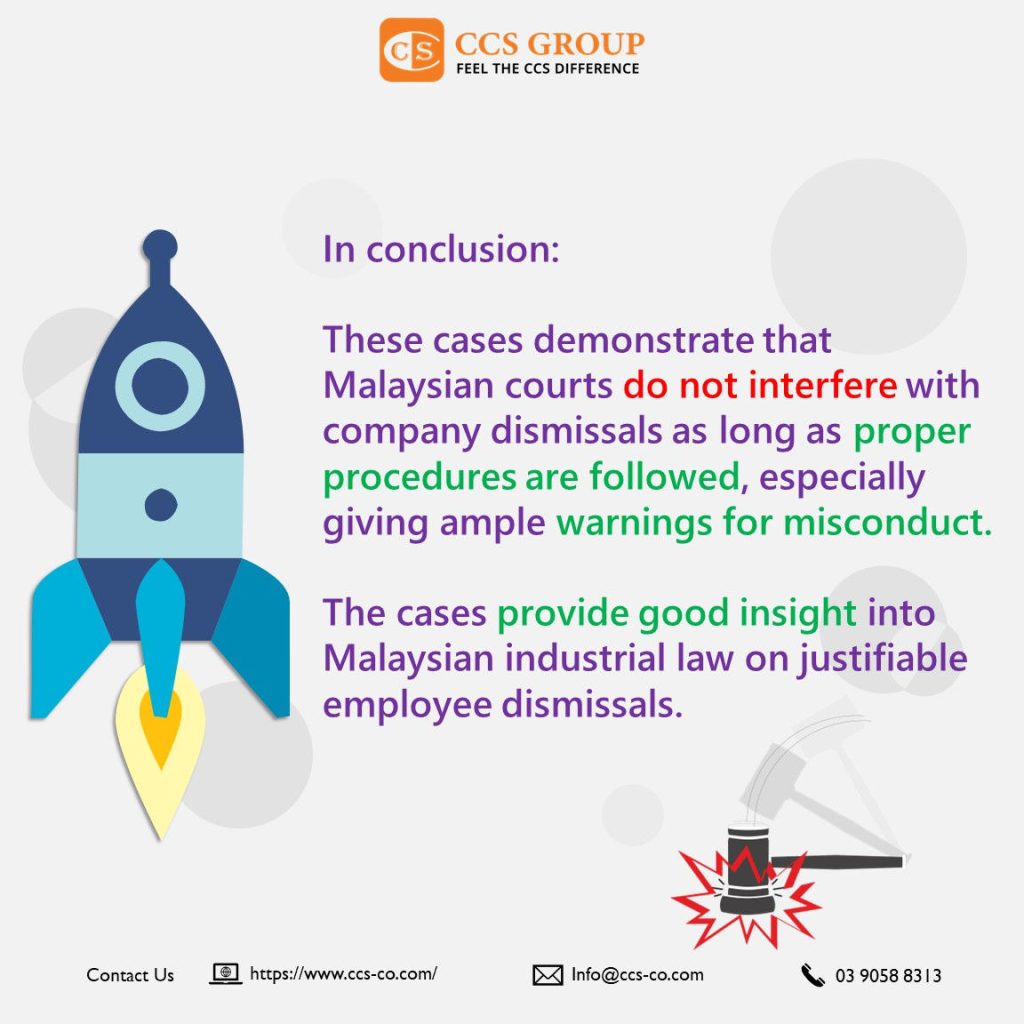





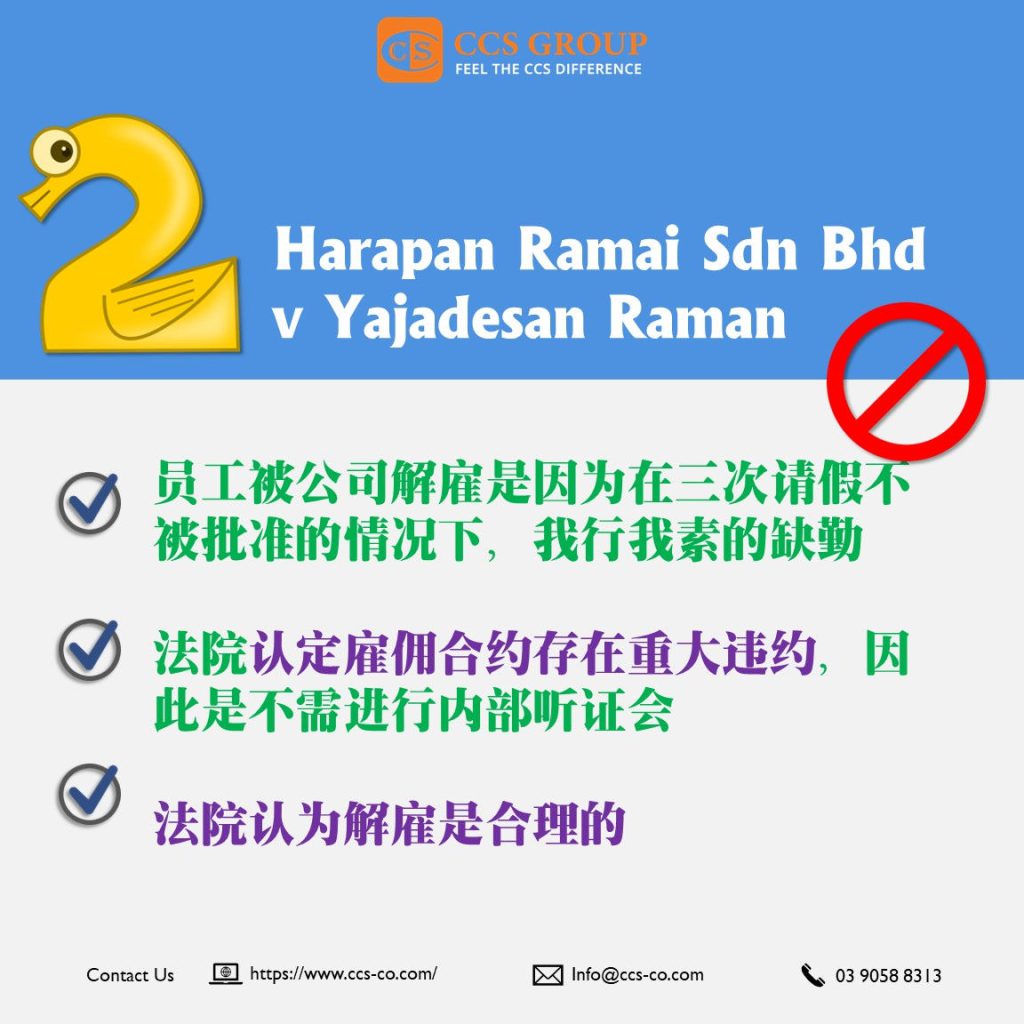



Let me briefly summarise the key points:
American International Assurance v Seah Chee Teck:
Background Facts:
- The claimant, Seah Chee Teck, was employed as an assistant manager (sales) by American International Assurance Co. Ltd (the company).
- The company dismissed the claimant on 10 November 1993 for poor performance and misconduct, including:
- Consistent lateness to work despite repeated verbal and written warnings
- Failure to inform the office when leaving for appointments as required
- Poor performance in meeting sales targets and carrying out agency visits
- Disrespectful and non-cooperative attitude towards his superior
- The claimant contends his dismissal was without just cause and amounted to victimisation due to a personal conflict with his superior.
Court’s Evaluation:
- The Court found that the claimant’s continued lateness to work without a valid excuse, despite warnings, amounted to misconduct. Persistent lateness undermines work discipline.
- The Court held that willful disobedience of lawful instructions is serious misconduct that destroys trust in the employment relationship.
- The claimant’s failure to obey instructions to inform the office when leaving, submit reports on time, meet sales targets, and conduct agency visits amounted to insubordination.
- The Court found no evidence of victimisation. The claimant’s conduct showed disrespect for authority and persistent defiance of warnings.
- The Court held that the cumulative misconduct justified dismissal and was done with just cause. The company dismissed the claimant through proper procedures.
In summary, the Court ruled that the company was justified in dismissing the claimant for misconduct, including persistent lateness, insubordination and poor work performance.
The dismissal was done with just cause following due process.
Harapan Ramai Sdn Bhd v Yajadesan Raman:
Background Facts:
- The claimant Yajadesan Raman was employed as a driver by Harapan Ramai Sdn Bhd.
- On three separate occasions (Nov 1993, Feb-Mar 1994, Mar 1994), the claimant applied for leave which was not approved by the company, but he still proceeded to go on leave.
- After each unauthorised leave, the company issued a warning letter to the claimant. After the third incident, the company dismissed the claimant.
- The claimant contends his dismissal was without just cause as he claims he did not apply for leave on those occasions, did not receive any warning letters, and alleges his leave forms and punch cards were forged by the company.
Court Evaluation:
- The court found the testimonies and evidence presented by the company’s witnesses consistent and credible and accepted their version of events.
- The court found the claimant’s forgery defence unsubstantiated and unbelievable.
- The court held that an employee cannot take leave without the employer’s approval, and doing so is a fundamental breach of contract.
- The court ruled there was no need for an inquiry in this case of fundamental breach, unlike for a misconduct dismissal.
- The court was satisfied the company provided sufficient warnings and opportunity for the claimant to explain his actions before dismissal.
Conclusion:
- The court ruled the claimant’s dismissal was with just cause and excuse, as he breached the employment contract by absenting himself without approved leave on three occasions despite warnings.
- The court dismissed the claimant’s unfair dismissal claim against the company.
Pulai Mewah Sdn Bhd v Leong Fook Heng:
Background Facts:
- Claimant Leong Fook Heng was employed as a supervisor by Pulai Mewah Sdn Bhd.
- The company dismissed the claimant due to excessive absenteeism without a valid reason, which affected his ability to perform his duties and the company’s production.
- The claimant contends he was not given any warning letters except one unsigned letter produced late. He denies being given verbal warnings.
- The claimant argues his dismissal was without just cause as the termination letter did not specify the reason.
Court Evaluation:
- The court found absenteeism was the real and main reason for the claimant’s dismissal.
- The court accepted the claimant was absent without valid reasons for a substantial number of days, exceeding his leave entitlement.
- The court found the claimant was given one written warning letter which he refused to sign, and verbal warnings which the claimant admitted to.
- The court ruled the company did not condone the absenteeism but gave chances for the claimant to improve.
- The court found the termination letter intimating the claimant was “unfit for the assigned job responsibilities” due to absenteeism was sufficient reason.
- The court held the failure to hold a domestic inquiry was not fatal.
Conclusion:
- The court ruled the claimant’s dismissal was with just cause and excuse as his excessive absenteeism constituted serious misconduct.
- The disciplinary action taken was not excessive or harsh in light of the circumstances.
- The court dismissed the claimant’s unfair dismissal claim.
Conclusion, these three cases demonstrate that Malaysian courts do not interfere with company dismissals as long as proper procedures are followed, especially giving ample warnings for misconduct.
However, courts will inquire if dismissals are unfair or harsh.
Evidence must prove employee misconduct and warnings given.
Absenteeism and insubordination are valid causes if persistent. Proper documentation is essential.
The cases provide good insight into Malaysian industrial law on justifiable employee dismissals.
Companies must show they acted reasonably before courts will accept dismissals with just cause. Companies should issue show cause letters and verbal and written warnings, provide opportunities for improvement, and adequately document all processes.

Disclaimer:
The articles, templates, and other materials on our website are provided only for your reference.
While we strive to ensure the information presented is current and accurate, we cannot promise the website or its content, including any related graphics. Consequently, any reliance on this information is entirely at your own risk.
If you intend to use the content of our videos and publications as a reference, we recommend that you take the following steps:
- Verify that the information provided is current, accurate, and complete.
- Seek additional professional opinions, as the scope and extent of each issue may be unique.
免责声明:
我们网站上的文章、模板和其他材料只供参考。
虽然我们努力确保所提供的信息是最新和准确的,但我们不能保证网站或其内容,包括任何相关图形的完整性、可靠性、适用性或可用性。因此,您需要承担使用这些信息所带来的风险。
如果你打算使用我们的视频和出版物的内容作为参考,我们建议你采取以下步骤:
- 核实所提供的信息是最新的、准确的和完整的。
- 寻求额外的专业意见,因为每个问题的范围和程度,可能是独特的。
Keep in touch with us so that you can receive timely updates
请与我们保持联系,以获得即时更新。
1. Website ✍️ https://www.ccs-co.com/ 2. Telegram ✍️ http://bit.ly/YourAuditor 3. Facebook ✍
- https://www.facebook.com/YourHRAdvisory/?ref=pages_you_manage
- https://www.facebook.com/YourAuditor/?ref=pages_you_manage
4. Blog ✍ https://lnkd.in/e-Pu8_G 5. Google ✍ https://lnkd.in/ehZE6mxy
6. LinkedIn ✍ https://www.linkedin.com/company/74734209/admin/
7. Threads ✍ https://www.threads.net/@ccs_your_auditor
8. 小红书 ID ✍ 2855859831






